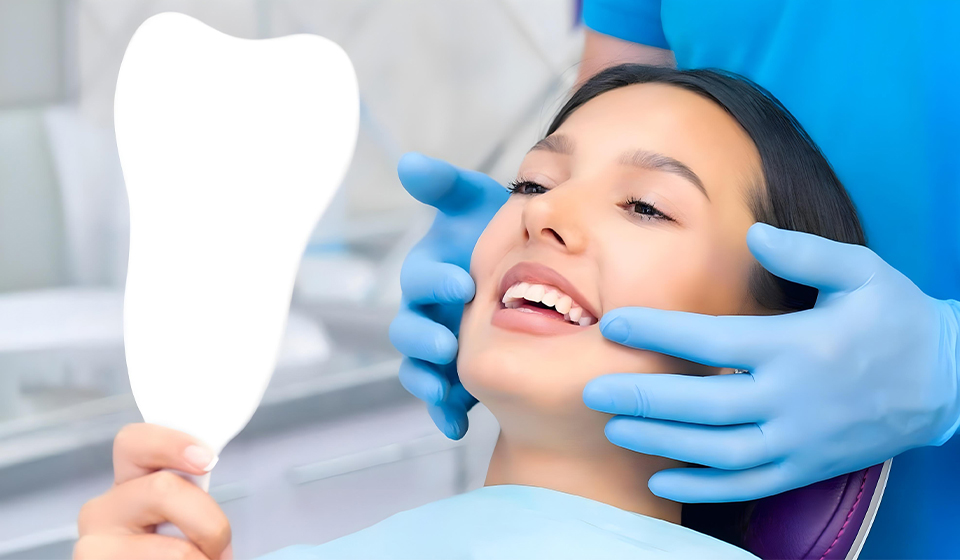
Dental Hygiene 101: The Importance of Daily Care for Long-Term Health
November 14, 2024 8:55 am |Your smile is often the first thing people notice, and maintaining good dental hygiene is essential not only for aesthetic reasons but for your overall health. We all know the basics: brush your teeth, floss, and rinse with mouthwash. But good dental hygiene goes far beyond these simple steps and plays a crucial role in your long-term oral and general health. Whether you need a dentist in Washington, DC, or are simply looking to improve your at-home care routine, understanding the importance of daily dental hygiene can save you time, money, and discomfort down the road.
Why Daily Dental Hygiene Matters
Dental hygiene involves more than just brushing your teeth every day. It’s about maintaining an overall care routine that helps prevent a wide range of oral health issues. When you neglect your teeth and gums, you risk developing serious conditions such as cavities, gum disease, and even tooth loss. But did you know that poor dental hygiene can also affect your overall health? The mouth is a gateway to your body, and bacteria in your mouth can enter your bloodstream, potentially affecting organs such as the heart and lungs. For example, untreated gum disease has been linked to increased risks of heart disease, stroke, and diabetes. By taking steps every day to care for your teeth, you can avoid these health problems and maintain your confidence.The Essentials of Daily Dental Care
The core of any solid dental hygiene routine consists of three key actions: brushing, flossing, and rinsing. However, there are many other aspects to consider when building a daily care routine.Brushing Your Teeth Properly
Brushing your teeth is one of the most important things you can do for your oral health. Ideally, you should brush your teeth twice a day, in the morning and before bed. But it’s not just about how often you brush—it’s about how you do it. It’s important to replace your toothbrush or toothbrush head every three to four months, or sooner if the bristles become worn.Flossing: An Essential Step You Can’t Skip
Many people skip flossing, but it’s an essential part of dental hygiene. Flossing removes plaque and food particles from between your teeth and along the gum line—areas where your toothbrush cannot reach. If plaque is left between the teeth, it can turn into tartar and lead to gum disease.Mouthwash for Extra Freshness and Protection
Rinsing with mouthwash is a great way to freshen your breath and add an extra layer of protection against plaque and bacteria. Antibacterial mouthwashes help reduce the bacteria in your mouth, which can prevent gum disease and cavities. Choose a mouthwash that has fluoride for extra cavity protection or a mouthwash with an antimicrobial agent to combat bacteria. Use mouthwash after brushing and flossing for best results.Proper Diet and Hydration
What you eat also plays a significant role in your dental health. A balanced diet rich in fruits, vegetables, and dairy products provides the nutrients your teeth need to stay strong. Calcium, for example, is essential for strong teeth and bones. Likewise, vitamin C helps keep your gums healthy. Limit sugary foods and drinks as they contribute to plaque buildup and cavities. When you do indulge in sugary treats, be sure to brush afterward to avoid letting the sugar linger on your teeth. Drinking plenty of water throughout the day also helps wash away food particles and bacteria, reducing the risk of cavities and promoting overall hydration.Regular Dental Checkups
Even with the best daily hygiene routine, you need regular checkups with your dentist in Washington, DC. Professional dental cleanings remove plaque and tartar buildup that regular brushing and flossing can’t address. These checkups also allow your dentist to detect early signs of tooth decay, gum disease, or other issues that may not be visible to the naked eye.Avoiding Bad Habits
Certain habits can negatively affect your oral health, even if you’re following a good dental hygiene routine. Some of these habits include:- Smoking or using tobacco products: tobacco use increases your risk of gum disease, tooth loss, and oral cancer.
- Grinding your teeth: Bruxism can wear down your teeth, causing sensitivity and even cracking or breaking them. Talk to your dentist if you think you may grind your teeth, especially at night.
- Chewing on hard objects: Avoid chewing on ice, pens, or other hard objects, as they can crack or chip your teeth.
Conclusion
If you’re looking for a trusted dentist in Washington, DC, visit New Columbia Dentistry in Washington, DC. Our team is dedicated to providing comprehensive dental care and personalized treatment to help you maintain optimal oral health. From routine cleanings to advanced treatments, we’re here to support you on your journey to a healthier smile. Schedule your appointment with us today!Categorised in: Oral Hygiene
